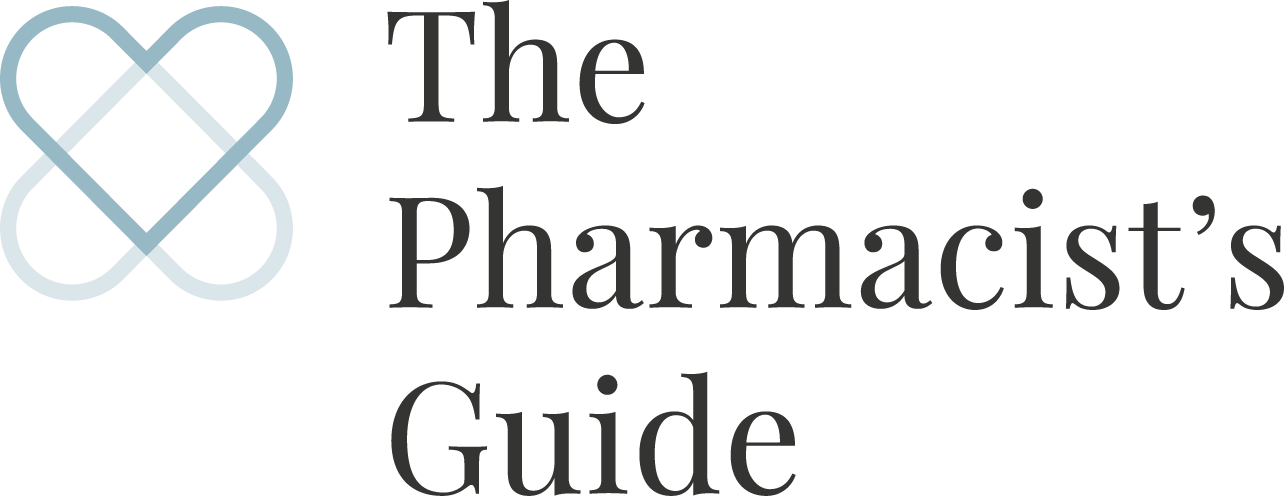10 Things I Should Have Learned in Pharmacy School
A lot of knowledge was packed into four years of pharmacy school education and I can't help but wonder if another class or two on the items below would have been helpful. Joking, of course. Most of the these are learned through on-the-job training and life experience. I wonder how many headaches could have been avoided if they were common knowledge for all?
My list of How To's:
Calming Down an Angry Customer
Sigh. I took so many things personally when I first started out as a pharmacist. I will never forget how an anesthesiologist reamed me out on one of my first weekends working alone at a hospital because something was not overridable in Pyxis. I felt helpless and frustrated - the tone was inappropriate and I didn't have the control or access to just make something over-rideable, and even if I did, those decisions usually were made through multi-disciplinary committees. You know what? It wasn't personal. He had never met me. He was angry in the moment and projecting his frustration. Instead of absorbing that anger, I should have just let it wash off. It's not personal, just listen, empathize and find a solution.
Ultimately, our customers just want us to listen. They are in a lot of pain, are being inconvenienced, and are scared. Instead of saying "I can't", "your insurance won't", "we don't have this in stock", "I don't have your prescription", etc... listen to their frustration and focus on what you can do (not what you can’t). Some battles will never be won but focus on handling yourself appropriately and don't take things personally. I think one of the easiest ways to get to an agreement is to let them vent, DO NOT react (which is very hard when you are being insulted or sworn at), show some empathy, repeat back what they need, and work to find a solution without getting emotional. It is very very hard to keep your cool when your integrity, competence, or knowledge is being insulted. Just remember , it's not personal, rise above, and get the job done.
Multitasking
It's a good thing most pharmacists I know are detail-oriented, type A (crazy control freaks!), intelligent human beings because I've never had to juggle more things at once than when I was working as a clinical or retail pharmacist. In retail: the phone is ringing, someone is on hold while you are looking up a question for them, someone is at the consultation window, someone needs an immunization, a doctor is on the other line calling in a prescription, a technician is shoving a prescription in your face to verify for the person at the drive-thru, and there are forty waiters in the queue. Oh, and the Board of Pharmacy or your DM decides to spontaneously show up. This is a typical day.
In hospital: someone needs factor, you have stat orders in the queue, the nurse is asking you a question, the doctor is calling you about a dose, a nurse is paging you for a missing dose, you need to counsel this patient about dofetilide before they get discharged, there's a code, you have a presentation to give to the residents in thirty minutes, and oh, your child's daycare is on the line saying they need to be picked up for a fever.
Take a breath, prioritize, put a smile on your face and delegate!
Unjamming a Printer
Sometimes I want to kick that thing. Office Space, anyone? Whether you are waiting for a printout in retail pharmacy, a medication reconciliation on a hospital unit or a handout for a meeting you are presenting at in ten minutes, nothing impedes progress like a printer that won't print.
There is nothing worse than realizing that the printer has been jammed for 20 minutes or is out of toner, (and you have no idea where the extra toner is kept) etc... And why can't more things in the pharmacy be digital? We waste a lot of paper. Anyway, I digress.....
Troubleshooting Technology
Along the lines of a printer jam.... there is nothing worse than trying to do something important for your job and there is a glitch that you have no idea how to fix. When I worked at Walgreens, the cash register would physically stop you from ringing up a prescription if it hadn't been scanned at one of the verification steps. Now, this is a very very good thing because it makes sure that you filled everything correctly, keeps the patient safe, etc... but if the computer is freezing or down and you somehow can't verify the prescription, you have a problem...and an angry customer. And how many headaches did we have in the hospital when Pyxis was down?! And don't get me started on how many times I had to give a presentation to hospital leadership and the projector was giving me an fit (and an anxiety attack!)!
Inventory
Thanks to my MBA, I understand inventory turnover, etc... but we are not taught a lot of those principles in school. Inventory is a HUGE part of any dispensing pharmacy. Medications are expensive. Too much or too little medication on the shelf can really affect your practice and customer retention. If you have faulty ordering practices, high dollar medications may sit on the shelf and expire. This can massively impact your budget especially with certain drugs that have a short shelf life and cost tens of thousands of dollars. Managing controls is also a big part of especially when a CII is involved. Yes, we have technology, and it’s “just counting”, but you still have to have a good system in place to keep organized track of what you have in stock.
Working with Sterile Preparations
In my pharmacy school, the amount of sterile preparation experience you received was dependent on your rotations. If you didn’t have a certain type of hospital rotation or preceptor, you didn’t get exposed to it a lot (or at least in my experience). When I started working as a clinical pharmacist, so many nursing questions were related to how to give a medication and storage/stability requirements. On occasion, I also had to compound something. I had to do a lot of on the job training, and it would have been helpful to have some good school resources to refer to.
Managing Call-outs, Schedules, Delegating, etc...
This is just part of the job. I learned a lot about managing people in my MBA but learning and doing is a completely difference experience. Whether you want to or not, being a leader is just part of being a pharmacist. At some point, you will be managing someone. Instead of complaining or getting overwhelmed, come up with a plan, execute it, and handle your team like a boss.
Effective Delivery when Talking to Patients, Doctors, Nurses, Insurance Companies.....
Have you ever met someone who can talk someone into anything? I worked with an incredible leader at my last job, and he just had “it”, that quality that could make people clean bathrooms and have fun doing it. Have you heard the saying, "it's all in the delivery".
What about when you call an insurance company? I know you're saying, it's easy! Anyone can make a phone call! In this industry, a lot of times using the correct terms, talking their language, and being pleasant can get you a long way.
What about when you are talking to a patient. Often, how you handle them can either elevate the situation or diffuse it. "Your insurance won't cover this medication, but we can work with your doctor to get you an equivalent that is covered". To a doctor or nurse: "this medicine is on shortage and we have none in stock, but we do have this medication in stock that may be a substitute or therapeutically equivalent." Instead of ignoring someone at the retail window, acknowledge them and tell them you'll be right with them. There are also many instances where we may not have a good solution, but by letting a patient or professional know that you hear them and we are all working together towards the same goal - to make the patient better and get their medication as quickly and as cheaply as possible - may help them understand that you are there to help.
Enjoying My Time
Take that vacation. Explore the world. The irony is that when you finish school, you are poor with student debt and just want to start working and making money because you think that it will allow you to do things! And you get a job with 2-4 paid vacation weeks a year (boooooo) or with a PTO schedule where you start at the bottom with seniority. If you can, take a month off before you start your job. If you are finishing residency in June, take the month of July (and August too if you can!) off. Find yourself again. Spend time with your family. You've been studying nonstop for four years. Now you actually have time for a hobby. What do you want to spend your precious free time doing?


